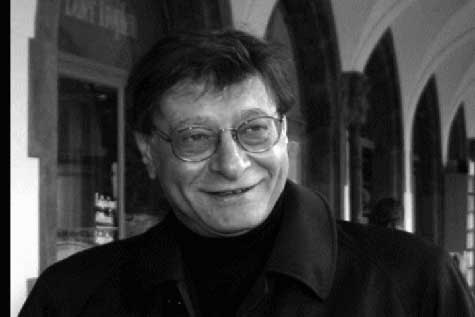Month: November 2009

A few weeks ago, when I heard that Farrar, Straus and Giroux was publishing a new volume of Mahmoud Darwish’s poetry, I was thrilled. But I was also a little disappointed that such recognition would come after his passing. (Darwish has been published in the United States before, of course, though never by a major commercial press.) The book is called If I Were Another, and it is translated by Fady Joudah.
“If I Were Another” (Farrar, Straus and Giroux) presents long poems from the latter part of Mr. Darwish’s career—the only part that the poet, persistently self-critical, regarded as “mature.” These “lyric epics,” drawn from four collections, weave together many settings and voices. An elegy for the author’s father is followed by a polyvocal poem spoken by birds; a series on Andalusia, by the monologue of a Native American.
You can read more on the book at Speakeasy, the WSJ‘s book blog. Joudah previously translated the lovely volume The Butterfly’s Burden, published by Copper Canyon Press.
10:00 AM
Panel on Islam and Writing
Nanovic Institute for European Studies
Mckenna Hall
University of Notre Dame
Notre Dame, Indiana
I am in Indiana today, giving a talk at Notre Dame University. I don’t know if there are any readers of the blog in the area, but here are the details in case any of you are interested.
My trip over here was pleasantly uneventful, until the very end. A soldier who was returning home from Iraq was on the plane to South Bend. When we arrived, her little boy, no more than five or six, ran to greet her and wouldn’t let go. Everyone was staring. There wasn’t a dry eye in sight. I was happy to see her reunited with her family, but angered once again that she and so many others are fighting in this immoral, unjust war, which has brought only misery to the people of Iraq and the United States.

From Toni Morrison’s second novel, Sula:
Still, it was lovely up in the Bottom. After the town grew and the farm land turned into a village and the village into a town and the streets of Medalion were hot and dusty with progress, those heavy trees that sheltered the shacks up in the Bottom were wonderful to see. And the hunters who went there sometimes wondered in private if maybe the white farmer was right after all. Maybe it was the bottom of heaven.
The black people would have disagreed, but they had no time to think about it. They were mightily preoccupied with earthly things–and each other, wondering even as early as 1920 what Shadrack was all about, what that little girl Sula who grew into a woman in their town was all about and what they themselves were all about, tucked up there in the Bottom.

